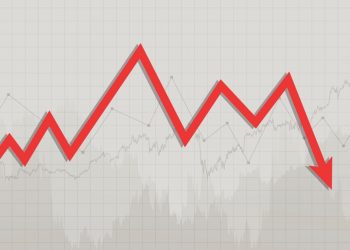 (TNS)–So, what do the well-to-do do daily? That is, besides ask the butler to clear the tablecloth with one of those chrome, crumb-scraper things?
(TNS)–So, what do the well-to-do do daily? That is, besides ask the butler to clear the tablecloth with one of those chrome, crumb-scraper things?
It’s true that money can’t buy many things — but some things can buy money, and wealthy people practice them daily.
They Keep Their Cool
To write his 1937 book “Think and Grow Rich,” author Napoleon Hill studied the habits of more than 500 wealthy people. He learned that those who overreact make a poor impression. As Hill wrote in another essay, “Remember that silence may be much more effective than your angry words.”
They Maintain a Daily To-Do List
Tom Corley, the president of Cerefice & Company accounting firm in Rahway, N.J., conducted a self-styled, five-year study on wealthy and poor people. His results appear in the book “Rich Habits: The Daily Success Habits of Wealthy Individuals.” When Corley asked about to-do lists, 81 percent of rich people said they kept them, compared to 19 percent of those in poverty. Two-thirds of wealthy listers complete 70 percent or more of their daily tasks.
They Don’t Watch Much TV
The wealthy make productive use of time, as Corley relates on his “Rich Habits” website. Only 23 percent of the rich watch more than an hour of TV a day, compared with 77 percent of the poor. That leaves time for wealthy folks to do other things that broaden their financial horizons, such as reading. Ah yes, but what?
They Read the Financial Times
Go ahead, make fun of those salmon-colored newsprint pages; the Financial Times crowd is laughing all the way to the bank. In February, Harvard’s Nieman Foundation ran an article on the Financial Times’ supposed struggles. Its website ranks only 44th in the U.S. business news category, the article stated, but it appears some folks are counting the wrong numbers. The piece also cites FT’s own stats, which estimate average subscriber income at $250,000, while 13 percent of readers are millionaires.
They Network
Like poor Cubs fans, rich people tend to hang out with each other. They also dedicate time to widening their circles of acquaintance and influence, whether through business organizations, LinkedIn or groups that attract ambitious, entrepreneurial minds.
They Follow Healthy Diets
It’s hard to get your moneymaking brain in high gear if you feed it Twinkies and Diet Coke all day long. And the sad news is that diets of low-income people are getting worse, while those of high-income people are improving, according to the Journal of the American Medical Association Internal Medicine. This is not merely a function of money; food like vegetables, fruits, whole grains and healthy fats are not only heart healthy, but relatively inexpensive — especially when compared to, say, caviar.
They Educate Themselves
Audio books. Avid reading. TED Talks videos. Whatever the forum, wealthy folks are absorbing more knowledge, according to Corley. His research showed that 63 percent of the wealthy listen to audio books during commutes to work versus 5 percent of poor people.
They Invest
This might sound like a no-brainer — if you’re rich, you have plenty of money to invest, right? But the wealthy track and pour much more money by percentage into pensions and insurance, whether actively or passively, on a daily basis.
They Avoid Gambling
For some people, playing the market might seem like a gamble. But for the wealthy, temptations such as the lottery and casinos are less pronounced, says a study from the University at Buffalo Research Institute on Addictions. The institute found that the poorer the neighborhood, the higher the risk for problematic gambling: It was twice as likely in neighborhoods with the highest levels of concentrated poverty compared to neighborhoods with the lowest poverty levels.
They Rise Early
The early bird gets more than the worm, it seems. “Take 100 millionaires from across the world, and I’ll bet you not one of them sleeps in,” wrote Murray Newlands, a startup adviser, investor and entrepreneur. “The majority of these individuals are up at 6 or 7 a.m. slaving away while the rest of us are still eating pancakes.”
Lou Carlozo writes for GOBankingRates.com.
© 2015 GOBankingRates.com, a ConsumerTrack web property.
Distributed by Tribune Content Agency, LLC.









